How much does an outdoor educator really sleep? It’s a fair question, especially when there’s no ability to “clock out” while you’re in the wilderness. As an outdoor educator, you’re working until the expedition is over or until another staff member arrives and you’re able to hand over the reins. Early in my instructing career, I worried immensely about getting enough sleep. However, outdoor education isn’t about “growth through punishment,” as it’s sometimes portrayed. Challenge is a critical part of the learning model, and is a key part of understanding the truth in Kurt Hahn‘s assertion that, “There is more in us than we know.”
A successful expedition is a critical balance between pushing the team’s limits and making space to decompress and enjoy the wild places where we travel. As I developed as an outdoor educator, I learned several things about sleep on an expedition.
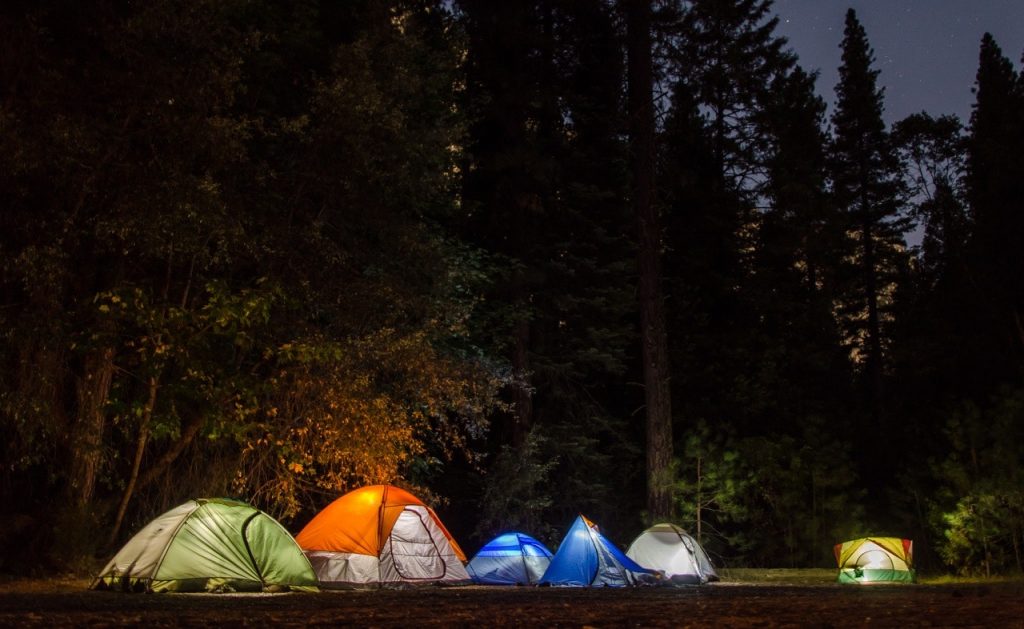
1. You’ll sleep less early on, but that’s temporary.
Regardless of how long the expedition you’re instructing is, the early stages of the expedition will require more from you as an Instructor. You’ll be teaching new skills to your students as they learn how to travel and work together in a new environment. You may still be in the early phase of building a working relationship with your co-Instructors, where everything requires more communication. You’ll likely get to know your students on a personal level or in a new context. Everything takes longer—whether it’s gathering firewood, reading a map or cooking dinner.
As the Instructor, you must know when to teach and when to simply do something so it’s done and everyone can go to bed. No one learns well when they’re tired, and you’re not the best educator when you’re tired. The longer the course, the more time your students will have for skill mastery and independence. As your students become proficient in certain tasks, you’ll be able to multi-task, like setting up your tent while they set up theirs, or studying tomorrow’s route while they make dinner. Less to do after they’re in bed!
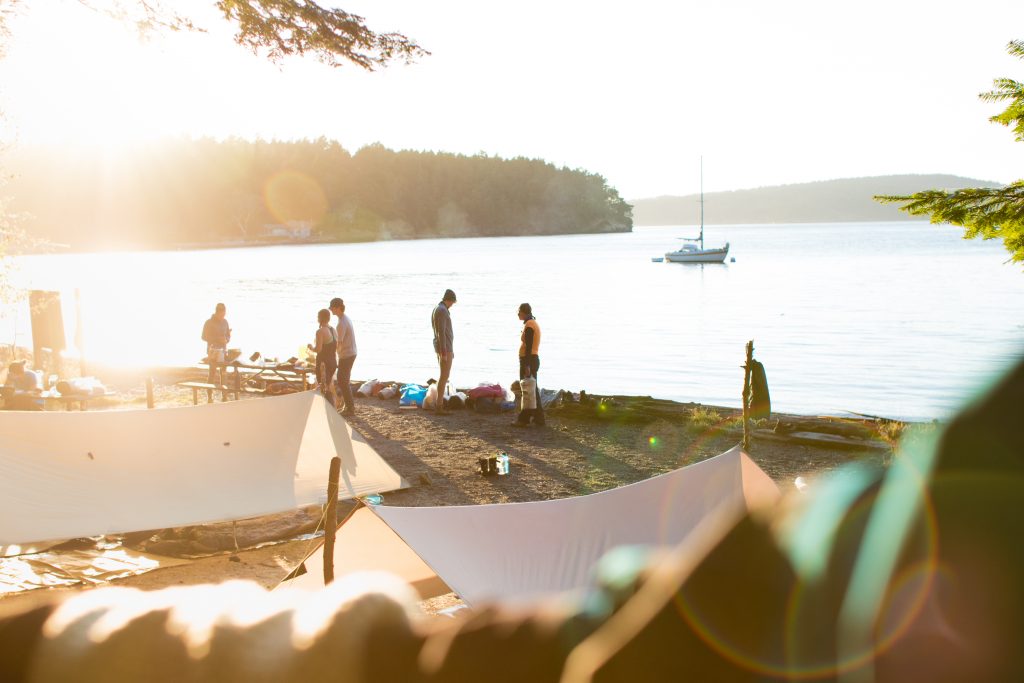
Students set up camp on the Northwest Outdoor Educator expedition. Courtesy of Charis Nichols.
2. Your students get silly without sleep.
Especially if you’re working with youth or teens, their brains need sleep in order to stay healthy and function properly. Depending on the terrain, traveling at night or dawn can be magical. This can be a planned element of your route to provide extra challenge or variety, or to ensure a strategic arrival time at a popular campsite. You shouldn’t count on it as a way to make up miles, as moving in the dark is usually quite a bit slower!
Expeditions should provide space for fun and learning, and both of those become difficult for the brain when it’s regularly deprived of sleep. Judgment, coordination and balance will also suffer when everyone is tired, leading to heightened risk of accident or injury.
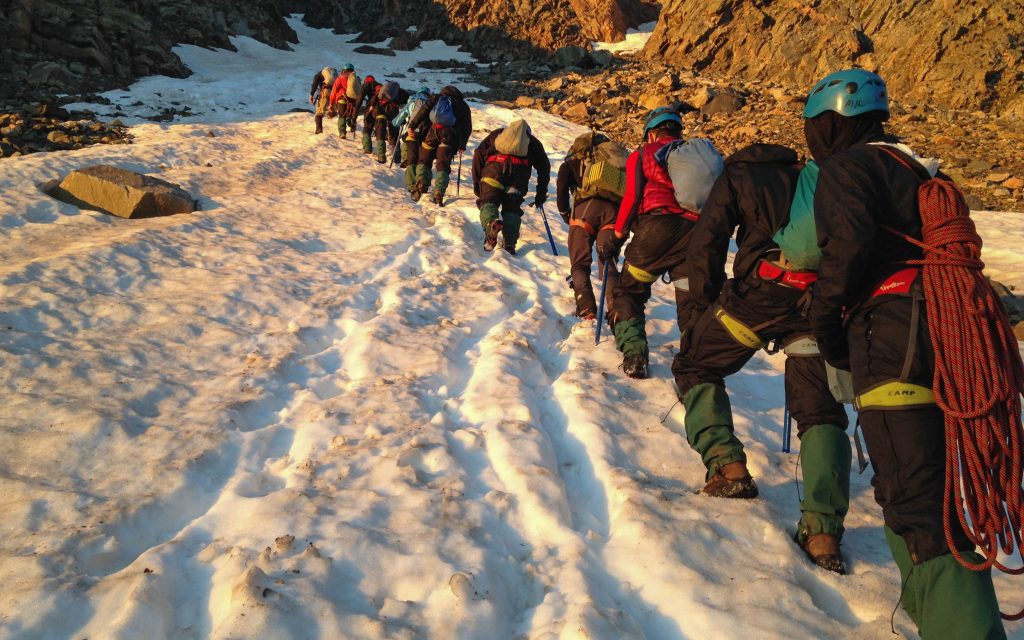
Photo by Jack Klim
3. Not every day can be a marathon.
If your team is regularly getting to the campsite late at night, slogging through dinner and collapsing before an early morning, it’s time to check in with your co-Instructors and figure out why this is happening.
Is the route too ambitious, or are conditions more challenging than you expected?
Do your students need additional instruction to improve their traveling skills?
Can you provide them more structure to move efficiently?
Does the group need a break?
The beauty of the outdoor classroom is that each day is a clean slate—a chance to try something new as an Instructor to help your students thrive in the wilderness and get to camp early.
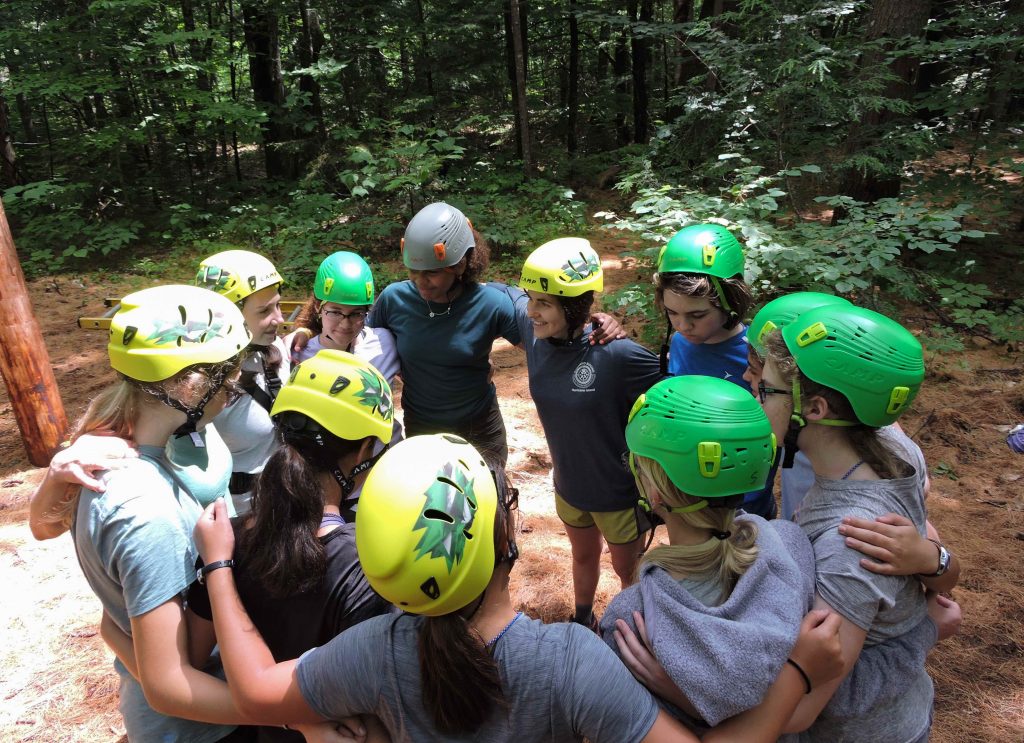
4. Solo is a perfect way to recharge.
While I love the meditative quality of paddling for hours on end, everyone needs a break eventually. A Solo experience can be not only a perfect chance to catch up on sleep, but it’s also an opportunity for introverts to recharge, muscles to take a break and gear to dry. While Instructors rarely get the day completely off of work during an expedition, it’s healthy for Solo to include some time to focus on your own well-being. Planning in a Solo halfway or two-thirds of the way through an expedition is a great opportunity to hit the re-set button and return well-rested and ready for the remainder of the course.
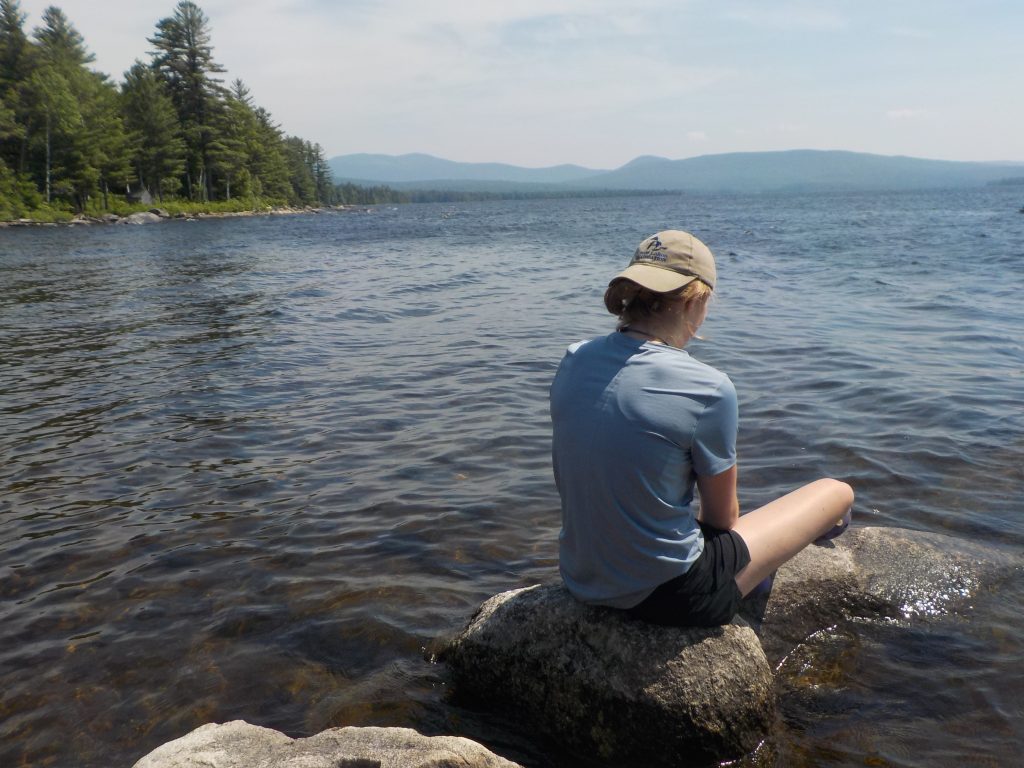
Solo
5. Paperwork is the same everywhere.
Depending on your employer and the goals of your course, as an outdoor educator, you’ll be required to complete a certain amount of documentation in real-time. Just as in any job, becoming familiar with the expectations and working proactively can serve you well. In the wilderness setting, being able to complete your paperwork efficiently and effectively can directly translate into getting more sleep.
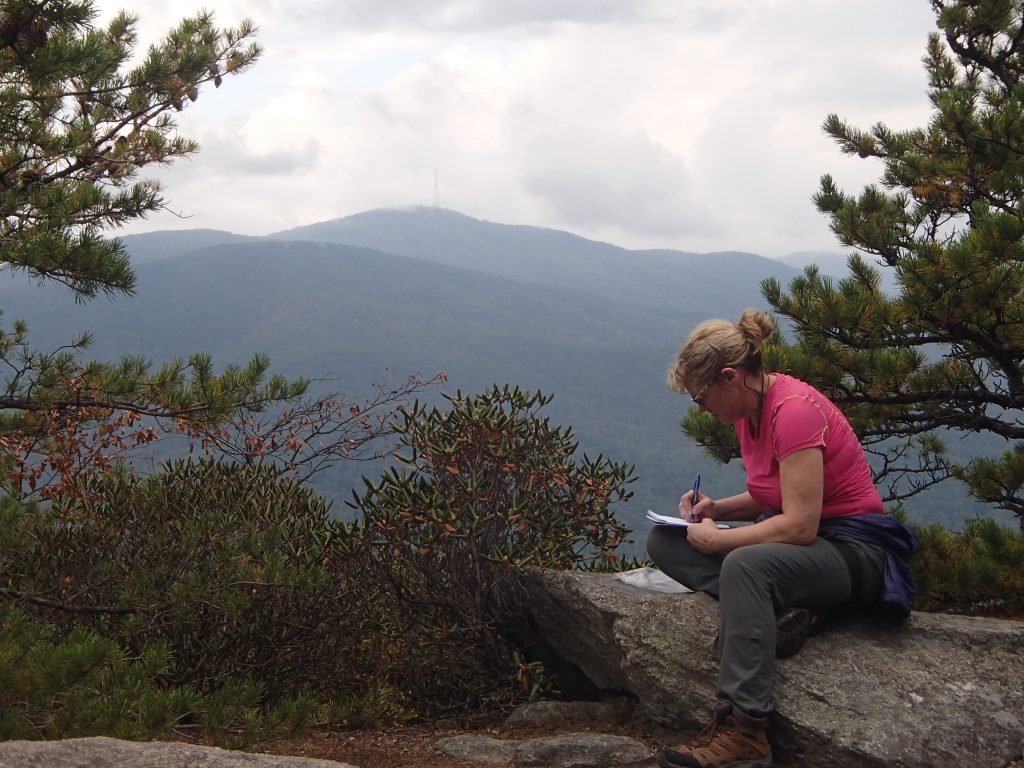
6. Sometimes, unusual circumstances call for unusual sacrifices.
To make outdoor education sustainable, you need to figure out how to balance your own needs with the needs of your group. However, at certain times, we actively choose to put aside our usual principals of self-care to accomplish something extraordinary.
On one of my most memorable expeditions, Instructors and students alike worked together to help a student—who moved differently than the rest of us—across challenging terrain. Every day, we were inspired to see him accomplish more than he thought he could and more than he had the previous day. Every day, it was our privilege to do more than our share of the work. Complaints were few from the group.
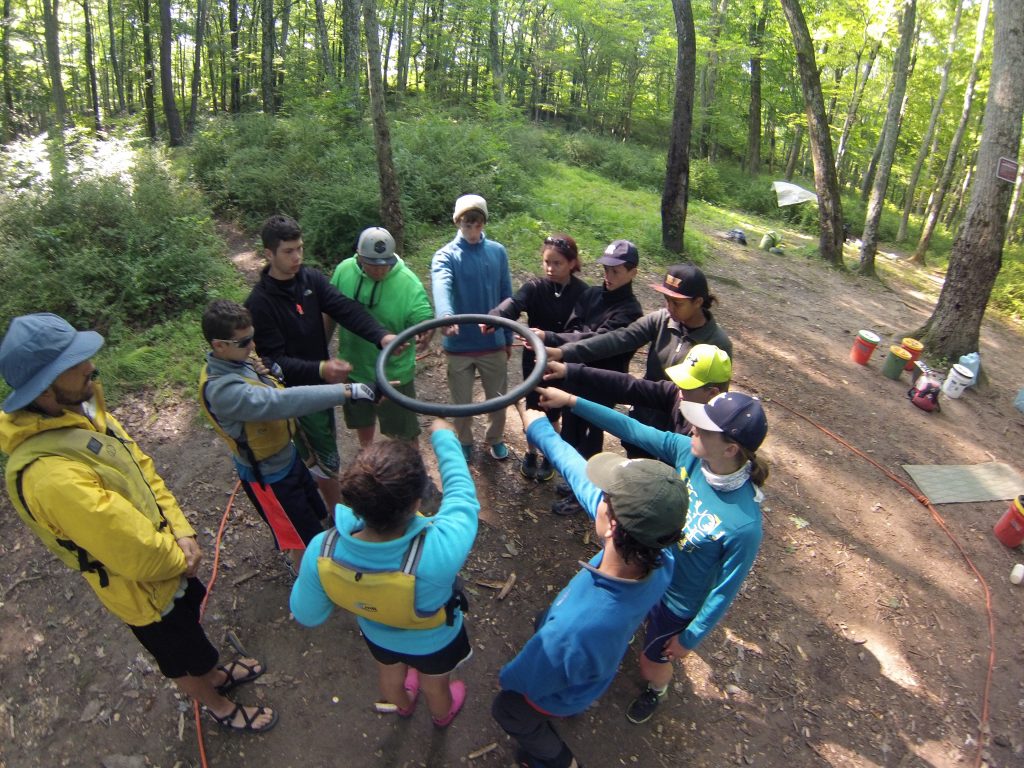
The more time you spend as an outdoor educator, the more skilled you become in balancing the equation between adventure and basic needs. In my time instructing, there have been courses where I got more sleep and courses where I got less, but the amount I slept is not usually what I remember about the experience.
About the Author
Renee Igo was an Outward Bound student at age 15, and has been instructing wilderness expeditions for the Voyageur Outward Bound School for the past eight years. When not instructing, she holds a variety of other teaching positions and raises sheep in Maine.




